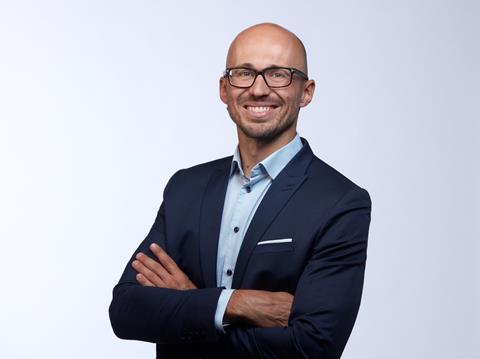

Toyota Mirai, Hyundai Nexo, Honda Clarity or the Mercedes-Benz GLC F-Cell – the first generation of hydrogen cars are on our roads, and other automakers are set to launch their own hydrogen-powered vehicles in the years ahead.
German joint venture H2 Mobility wants all those hydrogen pioneers out there to know it is building a nationwide refuelling network that will link up Germany’s key regions.
The initiative has an ambitious goal of installing 400 hydrogen stations in Germany by the late 2020s. If H2 Mobility was to reach those numbers, it would signify the world’s largest network of hydrogen stations.
The association’s first interim goal is to operate 100 hydrogen stations in seven German metropolitan areas – Hamburg, Berlin, Rhine-Ruhr, Frankfurt, Nuremberg, Stuttgart and Munich – along with the connecting arterial roads and motorways, by the end of this year.
And H2 Mobility is well on its way to achieving this; there are currently 62 hydrogen stations in Germany with a further 40 under construction.
Where possible, the initiative aims to integrate its hydrogen stations into existing petrol stations. Hydrogen is dispensed in the same way as petrol. Simply open the petrol cap and insert the fuel dispenser. The only difference is the fuel is a gas not a liquid.
Modern refuelling systems operate at 700 bar. Hydrogen’s high-density storage means the average time need to fill up a tank is just three minutes. And with 500 to 800 kilometres, the range of a fuel cell vehicle is comparable to that of its petrol-powered peers.
“When H2 Mobility started its business in 2015 there were 20 hydrogen stations in Germany built in 13 years. Today, three years later, this number of stations has tripled,” H2 Mobility’s Managing Director Nikolas Iwan (below) tells gasworld in an exclusive interview.

Source: H2 Mobility
“There are hydrogen stations in seven major metropolitan areas and along the biggest motorways. The 62 stations we currently have could comfortably serve 20,000 customers. However, at this time, there are around 500 fuel cell electric vehicles (FCEVs) in Germany.”
“Our goal is to build 400 stations and the first 100 are unconditional, no matter how many cars we see in the market, but from station 101 onwards, we are only going to build if the vehicles are coming. I assume we will see the 400 stations later in the 2020s.”
Iwan started his career working for oil giant Shell in various positions, but always wanted to find a way to push the energy transition forward. When the opportunity with H2 Mobility came along he said it was clear it was the ideal combination of his experience and passion.
“When I started in this role three years ago, I actually knew more about battery than hydrogen. I had just finished reading Elon Musk’s biography. Taking everything into account from what I have learned in the past years, I think hydrogen is still underestimated as a technology and will gain importance for the energy transition and mobility in particular,” he says.
“I believe in the necessity of hydrogen for a successful energy transition as a natural complement to the battery. I believe this for a number of reasons be it the affordable storage option hydrogen is, or the fact that hydrogen has a much, much smaller resource footprint than battery in terms of critical materials.”
“In mobility applications, the heavier they are, the more important time and range get the more beneficial hydrogen is as an energy carrier.”
Founded in 2015 by partners Air Liquide, Daimler, Linde, OMV, Shell and Total, H2 Mobility has a vision of building the filling station network of the future. It is responsible for establishing a nationwide hydrogen infrastructure to supply cars with fuel cell drives in Germany.
It is truly one-of-a-kind; there is no comparable entrepreneurial initiative anywhere in the world that sees the introduction of a zero emissions fuel as a national duty and works towards it in this spirit.
“Hydrogen has long been called the fuel of the future. The future has begun.”
“Everything started with the Clean Energy Partnership (CEP) and the decision of the German government to provide funding through the National Hydrogen and Fuel Cell Technology Innovation Programme (NIP),” Iwan explains.
“The CEP was established in December 2002 as a joint initiative of government and industry, lead-managed by the German Ministry of Transport and Industry. Its aim was to test the suitability of hydrogen as a fuel.”
“H2 Mobility was set up in 2015 as a joint venture to achieve the goal of developing a nationwide hydrogen infrastructure for the first time in a country with a population of 80 million.”
“Six investors, all leaders in their industries, provided the financial backing and set the goals for H2 Mobility: to select appropriate locations, invest, build and operate a successful customer-oriented network of hydrogen stations. Our ultimate goal is the rollout of hydrogen infrastructure with 400 sites.”
In 2017, the association launched the H2.LIVE app for drivers to locate the nearest hydrogen station or find out where the new ones are being built. The app offers real-time status reports on all public hydrogen stations in Germany and tells the user the opening times and current refuelling capability.
As H2 Mobility moves closer to completing its first phase – the unconditional roll-out of up to 100 stations in seven regions and on connecting motorways – Iwan says the association will have the important task of developing project for 2020.
“This is more complex for us because we are not only planning a station, but also developing the demand concept for it together with customers and partners.”
Concluding, he says, “I’d just like to end on one thought. Hydrogen has long been called the fuel of the future. The future has begun.”